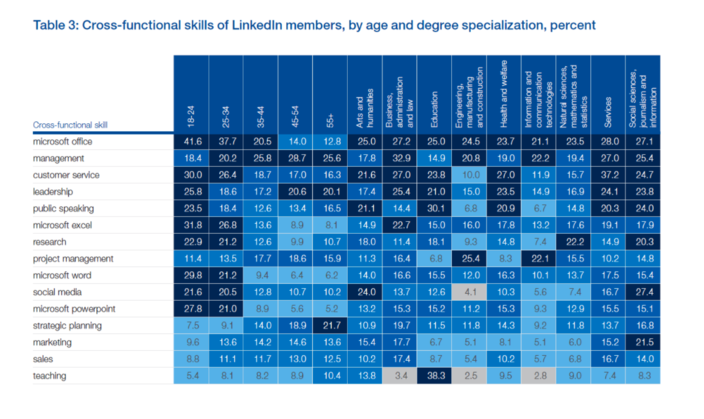by Lingoda Team
Updated on November 8, 2022
Learning a language is a great skill to have, especially if you want to live and work abroad, or simply experience another culture from the inside.
But could it help you keep your job? It’s not as crazy as it sounds. Artificial intelligence and automation are set to disrupt the lives of employees worldwide in the coming years. According to a report by McKinsey Global Institute automation could replace 15 percent of global work hours with some 400 million workers replaced.
Jobs most at risk include everything from data entry to real estate brokers and medical records technicians. No wonder then, that employees are seeking so called soft-skills where technology cannot compete. Especially training that will enable them to flourish in a radically reshaped work environment.
The good news is that positive ‘human’ qualities are increasingly valued in the workplace, as this report from LinkedIn makes clear. Collaborative skills: planning, teaching, sales and leadership all rate highly. Customer service – the ultimate business example of getting inside someone’s head – is highly ranked as well.

Put it another way, it pays well to focus on the human qualities that artificial intelligence finds hard to emulate. If that’s difficult to visualise, the think about how hard it is to build robots that walk as well as humans. How hard can it be to walk in a straight line? Pretty tough, actually. Walking is a miracle that requires massive computing power, connecting the nervous system, the brain and the organs of balance. And yet most of us are fortunate to get on with it without consciously thinking. Not so easy for a machine.
So what do these human qualities, or soft skills, include?
When it comes to acquiring soft skills, learning a language delivers on all of them. It boosts basic cognitive abilities including intelligence and memory. At the same time, it encourages people to be creative, flexible and use their imagination to solve problems.
It’s also a genuinely useful skill in itself. We live in an increasingly globalised, connected world where the ability to speak a second language opens the door to new opportunities within the business. In short, it opens the door to new career opportunities, relationships, and even the chance to live and work in another country.
It’s good for your well-being too. Multi-linguists are higher earners, more open-minded and better at solving problems. Learning a language also forces to you to concentrate, focus and live in the moment. It’s a deeply mindful experience in a world of constant distractions.
And when you speak a new language, you are immersed in a new culture and different ways of thinking. You’ll experience the world – and other people – in ways you never imagined.
In short, learning a language is not only desirable, it’s downright priceless in today’s workplace where empathy and problem solving skills are at a premium. Artificial intelligence is good at learning quickly and analysing vast amounts of information. But people, just like you and me, have the edge with it comes to imagination, insight and stubbornness. Here’s to being more human and learning a new language!
